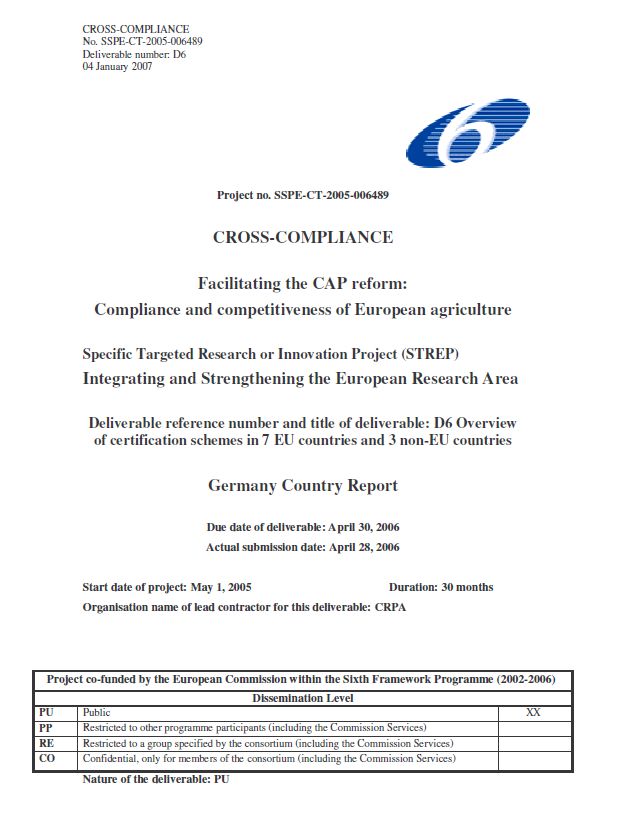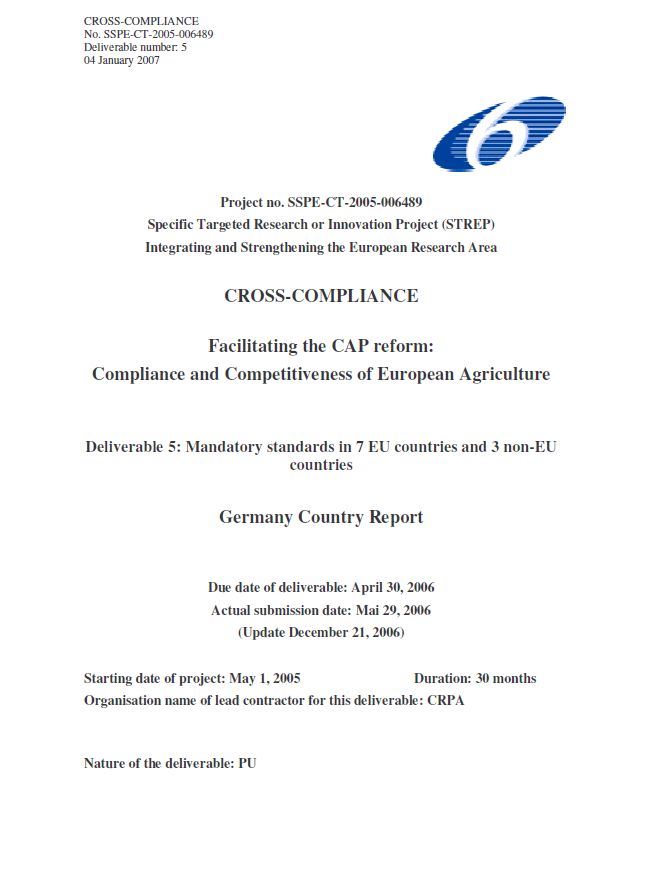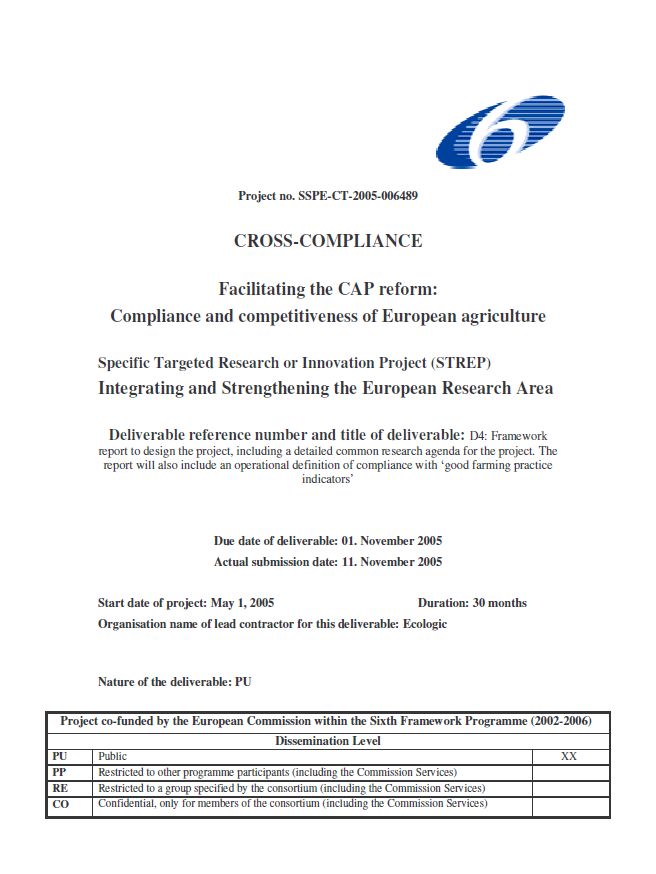One of the key elements of the latest 2003 reform of the Common Agricultural Policy (CAP) is compulsory compliance with environmental, food safety, animal welfare, and animal and plant health standards. Additionally, it is required that farmers maintain their farmland in good agricultural and environmental condition as a condition for receiving direct payments. The project will focus on the investigation of the value-added resulting from introducing cross-compliance as a tool to improve compliance with existing standards; and the investigation of the cost implications and competition effects of compliance to EU standards on the world market.
Background
The purpose of cross-compliance is to achieve two objectives – to improve compliance with existing standards (Council Regulation EC 1782/2003 Annex III) and to ensure that decoupling of direct payments from production does not lead to environmentally damaging marginalisation or abandonment (Council Regulation EC 1782/2003 Annex IV). However, depending on the enforcement and degree of compliance, the implementation of cross-compliance might impose constrains on farming practices and influence the costs along the agrifood chain in the EU. This might rise implications of compliance to EU standards on the external competitiveness of European agriculture.
At the same time, compliance with present mandatory EU standards at farm level and the potential role this could play in the reformed CAP with the implementation of cross-compliance instrument is at present either not known or only very poorly understood. Policy makers do not have sufficient scientific evidence of strategies suitable to improve compliance with mandatory standards at farm level in meeting EU policy goals. Therefore, theoretical and empirical research on the effects of standards on enhancing sustainable agriculture practices, food quality and animal welfare still needs to be done.
Aim of the project
The aim of the project is to investigate these interlinkages and fill the existing knowledge gap. The main objectives of this project are to:
- Examine the degree of compliance to mandatory EU standards,
- Review the institutional setting as well as the use of auditing procedures and governance rules for compliance to such standards with a view to improve the certification schemes in the EU,
- Developing a methodology to assess the impact of EU standards on the external competitiveness of EU agriculture, and
- Implement such a methodology for a selected range of products, assessing the impacts of such standards for external competitiveness of European agriculture.
To achieve this, the project will:
- Identify the relevant environmental, biodiversity, nature, food safety, animal welfare and health standards,
- Categorise standards and administrative procedures,
- Analyse how mandatory EU standards affect farming practices,
- Analyse the costs of compliance with existing standards along the agrifood chain,
- Develop a methodology to compare EU standards with those of the main competitors on the world market,
- Identify and characterise experience with certification schemes, and
- Investigate the value-added resulting from cross-compliance as a tool to improve compliance with existing standards.





